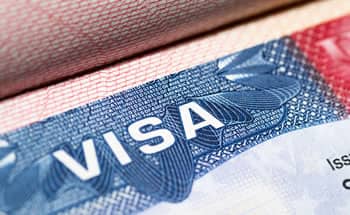
FAQs
The H1B visa is a nonimmigrant visa granted for an initial 3 years and up to 6 years (with possibility of extensions under specific circumstances) to foreign nationals who will engage in “specialty occupations,” defined as a position that requires one of the following:
- The minimum of a bachelor’s degree or higher degree or its equivalent;
- The degree requirement is common for this position in the industry, or the job is so complex or unique that it can only be performed by someone with at least a bachelor’s degree in a field related to the position;
- The employer normally requires a degree or its equivalent for the position; or
- The nature of the specific duties is so specialized and complex that the knowledge required to perform the duties is usually associated with the attainment of a bachelor’s or higher degree.
The H1B visa can also be allocated to fashion models of distinguished merit and ability (H-1B3 Visa), or to the person providing service related to the Department of Defense (H-1B2).
In addition to the specialty occupation requirement, the intending H-1B2 must show that a bachelor’s or higher degree, or its equivalent is required to perform duties, and that the cooperative research and development project (or a co-production project) is provided for under a government-to-government agreement administered by the U.S. Department of Defense
The H1B visa is a non-immigrant visa that allows its holder to concurrently file for Legal Permanent Residence (LPR), i.e. green card.
For the purposes of an H-1B visa, a ‘specialty occupation’ is a position that requires one of the following:
- The minimum of a bachelor’s degree or higher degree or its equivalent;
- The degree requirement is common for this position in the industry, or the job is so complex or unique that it can only be performed by someone with at least a bachelor’s degree in a field related to the position;
- The employer normally requires a degree or its equivalent for the position; o
- The nature of the specific duties is so specialized and complex that the knowledge required to perform the duties is usually associated with the attainment of a bachelor’s or higher degree.
Yes. When you qualify for an H-1B visa, your spouse and our unmarried children under age 21 can apply for H-4 visas by providing proof of their family relationship to you.
Yes. With an H-4 visa they can study in the US.
No. They are not authorized to work in the US as an H-4 visa holder.
Generally six years. As an H-1B Visa holder, you may be admitted for a period of up to three years. This can be extended for another three years. After that time, you must remain outside of the United States for one year before another H-1B visa petition can be approved. (Certain H-1B visa holders working on Defense Department projects may remain in H-1B status for 10 years.)
However, if you have a labor certification (PERM) or I-140 Petition for Immigrant Worker pending for over 365 days, you may obtain a one year extension beyond the six year limit until a decision is made on your PERM or I-140 Petition. Additionally, if your I-140 Petition has already been approved but your priority date is not yet current (immigrant visa is not available to you), you may apply for a three-year extension of your H-1B status.
Yes, an H1B visa holder can apply for a green card. Even though it is a Non-immigrant visa, the H-1B is a ‘dual-intent visa’. This means that the visa holder can have legal immigration intent (apply for and obtain a green card) without affecting their H-1B status. You can get a green card through family or employer sponsorship. Our Immigration Law Firm in Orlando can provide advice and assistance every step of the way and help you settle into your new life in the United States.
The H-1B visa process is initiated by the employer of the future H1B visa holder, who will have to file for a Labor Condition Application (LCA) with the Department of Labor (except for future H-1B engaging work for Department of Defense), before applying for the H1B Visa on behalf of the future employee.
In order to obtain this Labor Condition Application, the employer must prove that the future employee will be paid no less than the wage paid to similarly qualified workers, and that this employee will be provided working conditions that will not adversely affect other similarly employed workers.
Thereafter, the employer will file a petition for nonimmigrant worker with USCIS, along with evidence that the H1B visa applicant and the job offer meet the requirements of a specialty occupation.
The H1B visa has an annual numerical limit, or cap, of 65,000 visas each fiscal year and an additional 20,000 petitions filed on behalf of beneficiaries with a U.S. master’s degree or higher, which means that not all petitions filed with USCIS will be granted.
Exception: the cap and the application date do not apply to foreign nationals sponsored by educational institutions, nonprofit research organization, or by a government research organization, who can file the H1B visa petition at any time of the year regardless of the starting date and without cap limitations.
The application start date is usually April 1st of a given fiscal year, for a work start date of no earlier than October 1st of that same year.
Along with the visa availability, the other frequent challenge encountered with this status is that the spouse of the H1B visa holder, under H4 Visa, cannot obtain work authorization (with the exception of the spouses of the H1B visa holders who have had a pending application for permanent residency for a certain period of time).
The number of submitted H1B visa petitions increases each year, without foreseen change of the cap policy. Thus, we strongly recommend that you prepare your file with an immigration attorney prior to the application starting date in order to be along the first ones to be received by the Immigration Services.
The H-1B visa processing time varies because all cases are different. Your employer can submit the Labor Condition Application up to six months before you plan to start work and H-1B petitions are normally approved within two to five months. In most cases, the H-1B petition may not be filed before April 1st, for a start-date of employment of October 1st.
Yes, it is possible to speed up the process for an H-1B visa. For $1225 over and above the standard filing fees, USCIS promises “premium processing” of the visa petition, including action on your case within 15 calendar days.
Yes. You may travel in and out of the US or remain continuously until your H-1B status expires.
No. Our Immigration Law Firm in Florida can correspond with you via Skype, email, telephone, etc. Contact US to arrange a consultation.


